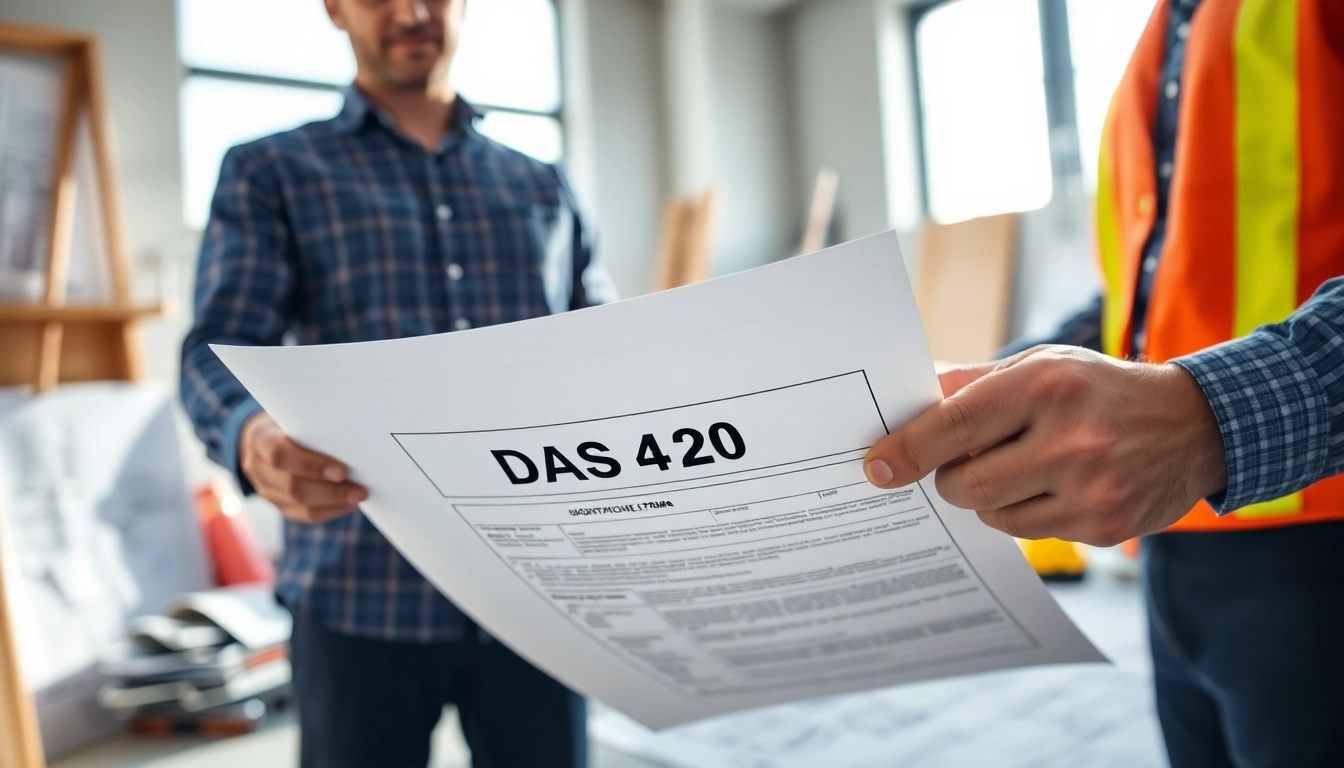Understanding Document Certification
What is Document Certification?
Document certification is the process of verifying that a particular document is a true and accurate copy of an original. This certification is important in various legal, professional, and personal contexts, where documentation serves to validate identity, rights, and legal standing. Certification often involves an official stamp or signature, signifying that the document can be trusted for use in official matters. In many cases, individuals may seek to understand how to certify a document without a lawyer, which can save both time and money.
Types of Documents That Need Certification
There are several types of documents that often require certification. These include:
- Legal Documents: Contracts, court orders, and legal agreements typically must be certified to ensure their validity.
- Identity Documents: Passports, driver’s licenses, and birth certificates may require certification for verification purposes.
- Educational Credentials: Degrees, diplomas, and transcripts often need to be certified for employment or further education.
- Financial Documents: Bank statements, loan agreements, and tax documents may also require certification.
The Importance of Certifying Documents
Certifying documents serves multiple purposes:
- Legal Acceptance: Certified documents are frequently required by institutions such as banks or educational institutions for official processes.
- Fraud Prevention: Certification helps to combat forgery and fraudulent activities by ensuring that copies are legitimate.
- Trust Establishment: Parties engaging in transactions rely on the integrity of certified documents, which enhances trust in their dealings.
Who Can Certify Documents?
Options for Document Certification Without a Lawyer
There are various methods for certifying documents without needing a lawyer, making the process more accessible. Here are some alternatives:
- Public Notaries: Notaries are authorized officials who can certify documents. They are often located in banks, law offices, and convenience stores.
- Commissioners of Oaths: Similar to notaries, these individuals can also provide certification of documents.
- Accountants and Social Workers: Certain professionals are authorized to certify documents related to their fields.
- School Officials: Schools and universities often have designated officials who can certify educational documents.
Role of Notaries in Document Certification
Notaries play a significant role in the document certification process. They serve as unbiased witnesses to the signing of documents, ensuring that the identities of the signers and their willingness to sign are validated. Notaries can certify copies of original documents but cannot alter or draft documents, as their role is primarily to observe and validate. In many jurisdictions, notaries can also provide their professional seal, which adds an extra layer of credibility to the certification process.
Alternatives to Legal Professionals
For individuals looking to certify documents without the involvement of legal professionals, there are administrative options available. Government offices such as clerks and registrars often handle document certifications, especially for public records. Moreover, organizations like banks, community colleges, and some utility companies might have authorized personnel who can deliver certification services. Taking advantage of these resources can be a quick and cost-effective approach to certifying your documents.
The Certification Process Explained
Gathering Required Documents
The first step in the document certification process is gathering all necessary documents. Here’s a useful checklist of required documents:
- Your original document.
- A clear copy of the document that needs certifying.
- Identification, such as a government-issued ID or passport.
Having all required materials ready can streamline the certification process.
Steps to Certify a Document
Here’s a step-by-step guide to certifying a document:
- Choose the Right Certifying Authority: Determine if a notary or another official is appropriate for your document type.
- Make Copies: Ensure you have at least one clear copy of each document you wish to certify.
- Set an Appointment: Contact your chosen authority and set a time for your certification.
- Present Documents: Bring all necessary documents, including identification.
- Pay Any Required Fees: Be prepared for a fee, which can vary based on the authority.
- Receive Your Certification: Once your documents are validated and signed, you will receive your certified copy.
Common Mistakes to Avoid
While certifying documents may seem straightforward, there are common pitfalls you should avoid:
- Inadequate Preparation: Forgetting to bring necessary identification or the original document can delay the process.
- Choosing the Wrong Authority: Ensure that the authority you choose has the ability to certify the specific type of document you need.
- Ignoring Fees: Be aware of potential certification fees in advance to avoid surprises.
- Neglecting to Verify Requirements: Different documents have different certification requirements; ensure you know what is needed for your specific case.
Cost Considerations for Document Certification
Typical Fees for Different Certification Methods
The cost of certifying a document can vary significantly based on a number of factors:
- Notary Fees: Notaries typically charge a fee that can range from $5 to $50 per document, depending on location and complexity.
- Bank Services: Many banks offer notary services for free or at a low cost for their customers.
- Government Agencies: Certification at government offices may incur standard processing fees, generally ranging from $10 to $30.
How to Save Money on Document Certification
Saving money while certifying documents can be achieved through several strategies:
- Check for Free Services: If you are a member of a credit union or hold an account with a bank, inquire about free notary services.
- Group Services: If multiple documents require certification, consider certifying them at once for potential bulk discounts.
- Research Rates: Different authorities and offices may have varying rates; shopping around can save you money.
Understanding Potential Hidden Costs
It’s essential to be aware of hidden costs that may arise during the certification process:
- Travel Expenses: If the certifying authority is not local, consider travel costs in your budget.
- Document Preparation Costs: Ensure that all documents are prepared correctly prior to certification to avoid additional charges for amendments.
- Identifications and Copies: Costs for obtaining additional identities or copies of documents may add up, so factor these into your overall budget.
FAQs About Document Certification
Can You Certify Documents Online?
Generally, online certification is limited. However, some services allow for e-signatures or digital certifications, depending on specific state laws. It’s important to check if your documents can be certified online and whether such certifications are accepted for your intended purpose.
How to Certify a Document for International Use
When certifying documents for international use, it may be necessary to follow specific guidelines set forth by the destination country:
- Apostille: Many countries are part of the Hague Apostille Convention, allowing documents to be certified with a standardized form of authentication.
- Legalization: Non-Hague countries often require documents to undergo a legalization process through their embassy.
What to Do If Your Certification Is Refused?
If a certification is refused, investigate the reasons for denial:
- Check if all documents were properly presented and comply with requirements.
- Consult the certifying authority to clarify any issues or misunderstandings.
- Seek an alternative certifying authority if the refusal was due to an administrative decision.



